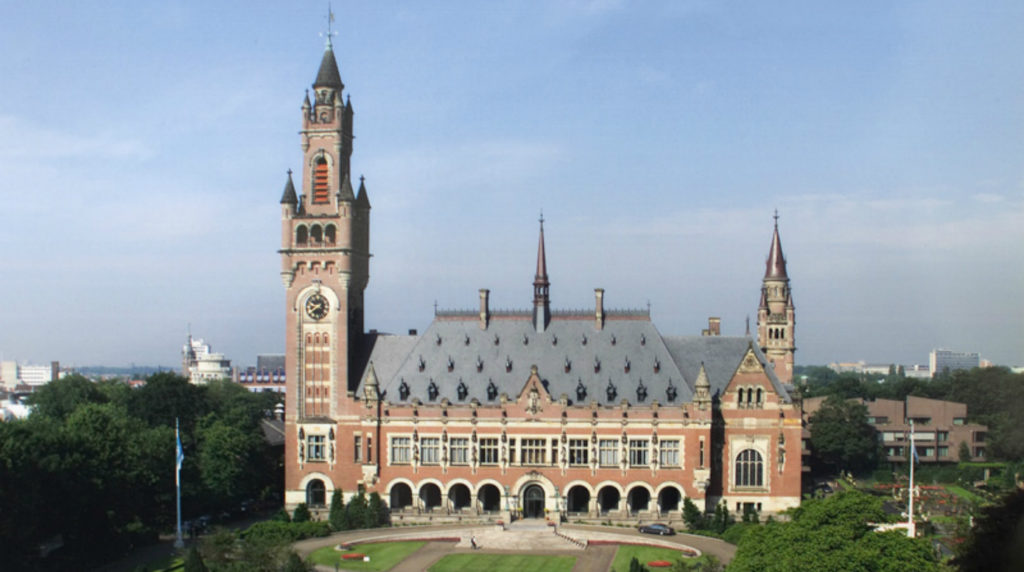India was party to a case at the ICJ on 6 occasions, four of them against Pakistan

[orc]India was involved in a case at the ICJ on six different occasions including the present one about ‘Kulbhushan Jadhav’. Pakistan was the opposite party on four of these six occasions. What happened in these cases?
The International Court of Justice (ICJ) is slated to deliver its judgment in the ‘Kulbhushan Sudhir Jadhav’ case on 17 July 2019. Both India & Pakistan made their final submissions to the the court. Pakistan requested the court to declare India’s claim inadmissible or to dismiss India’s claim in its entirety. On the other hand, India has requested the following;
- The sentence by Pakistan’s Military Court is violative of international law and the provisions of the Vienna Convention;
- India is entitled to restitutio in integrum; (restoration to original condition)
- Annul the decision of the Military Court and restrain Pakistan from giving effect to the sentence or conviction in any manner, and
- Direct it to release Jadhav immediately and to facilitate his safe passage to India;
In the alternative, India has requested the following if the court were to find that Jadhav is not be released;
- Annul the decision of the Military Court and restrain Pakistan from giving effect to the sentence awarded by the Military Court OR
- Direct it to take steps to annul the decision of the military court OR
- Direct a trial under the ordinary law before civilian courts, after excluding his confession and in strict conformity with the provisions of the ICCPR, with full consular access and with a right to India to arrange for his legal representation
Incidentally, this is not the only case where India was a party at the ICJ. Data from the ICJ website indicates that India was involved in 5 other cases at the ICJ and three of these cases had Pakistan as the opposite party. Here is what happened in the other cases.
Case about Right of Passage over Indian Territory (Portugal Vs India, 1955)
Portugal filed a case in 1955 at the ICJ claiming that Portugal had a right of passage through the territory of India to ensure communications between its territory of Daman (coastal Daman) and its enclaved territories of Dadra and Nagar-Haveli. Portugal argued that this right of passage comprises transit of persons and goods and passage of representatives & armed forces necessary to exercise the sovereignty of its territories.
India on its part contended that the events that took place in Dadra on 21st & 22nd July 1954 overthrew Portuguese authority in these enclaves creating tension in the surrounding Indian territory. India further contended that suspension of passage became necessary because of the abnormal situation in Dadra and the tension created in surrounding Indian territory.
Decision in 1960: The ICJ did not find fault with India and ruled that India has not acted contrary to its obligations.
Appeal regarding the Jurisdiction of ICAO (India Vs Pakistan, 1971)
India filed a case against Pakistan in 1971 contending that the Council of the International Civil Aviation Organization (ICAO) had no jurisdiction on an application & compliant filed by Pakistan. India further contended that any issue between the two countries is governed by the ‘Special Regime of 1966’.
Decision in 1972: The ICJ while rejecting Pakistan’s objection that ICJ has no jurisdiction to entertain India’s appeal also held that the ICAO is indeed competent to entertain the complaint made to it by Pakistan. At the same time, the ICJ also mentioned that the ICAO was in need of guidance and pointed out multiple procedural lapses made by the ICAO.
Case concerning the trial of Pakistani Prisoners of War (Pakistan Vs India, 1973)
Pakistan filed a case in the ICJ in 1973 for instituting proceedings against India in the case of the charges of genocide against 195 Pakistani nationals, prisoners of war or civilian internees in the Indian custody.
Decision in 1973: Pakistan had informed the ICJ that both India & Pakistan governments held discussions and came to an agreement on the issue. Pakistan also informed the court that they are not going ahead with the proceedings in this case.
Aerial Incident of 1999 (Pakistan Vs India, 1999)
Pakistan had filed a case at the ICJ in 1999 regarding a dispute relating to the destruction of a Pakistani aircraft by India in 1999. Pakistan contended that the ICJ had jurisdiction in this issue. India on the other hand contested the jurisdiction of ICJ in the issue saying that Pakistan’s application to the ICJ did not refer to any treaty or convention in force between the two countries.
Decision in 2000: The court rejected Pakistan’s contention that the Simla Accord provides for disputes between the two countries to be submitted to the ICJ. ICJ concluded that it had no jurisdiction to entertain the application filed by Pakistan. At the same time, the court requested both the countries to settle their disputes by peaceful means.
Case about the obligation of negotiations about cessation of Nuclear Arms Race (Marshall Islands Vs India, 2014)
The Republic of the Marshall Islands had instituted proceedings at the ICJ in 2014 against all nuclear weapon states, including India, contending breach of customary law obligations on nuclear disarmament (from Article VI of the NPT). India contended that the ICJ had no jusrisdiction in this case.
Decision in 2016: The court ruled that it does not have any jusrisdiction on the issue in the absense of a dispute between the two countries. The court further ruled that it cannot proceed to the merits of the case because of the lack of jusridiction.
Featured Image: International Court of Justice by Yeu Ninje